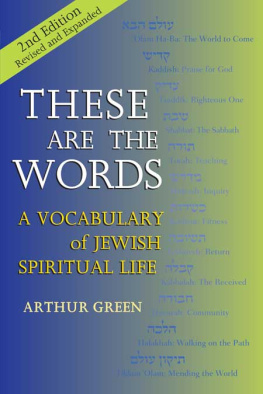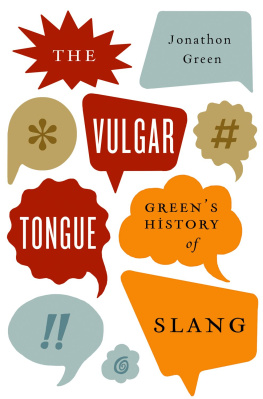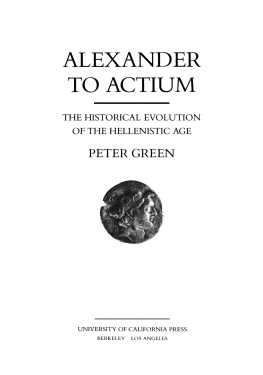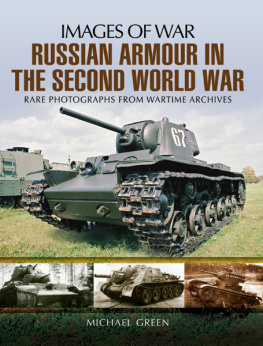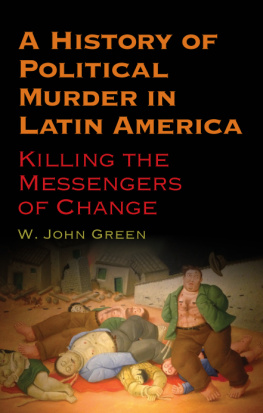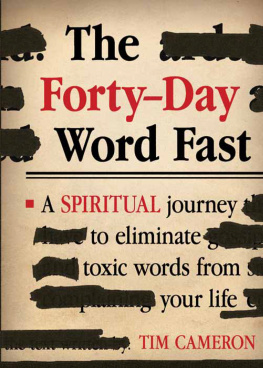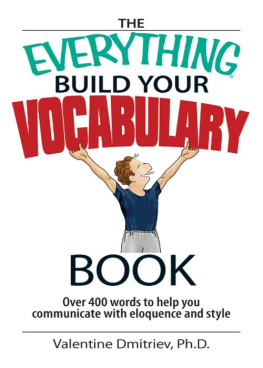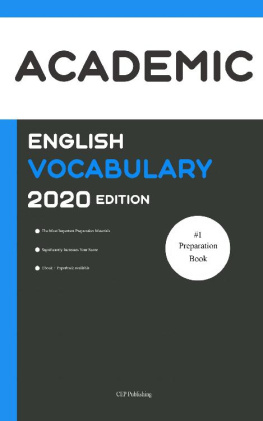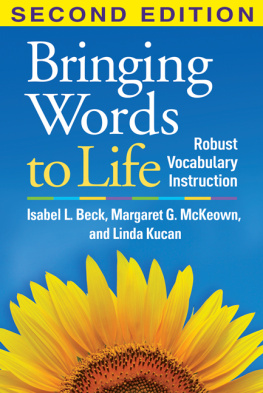Green - These Are the Words, 2nd Edition : A Vocabulary of Jewish Spiritual Life
Here you can read online Green - These Are the Words, 2nd Edition : A Vocabulary of Jewish Spiritual Life full text of the book (entire story) in english for free. Download pdf and epub, get meaning, cover and reviews about this ebook. year: 2012, publisher: Jewish Lights Pub, genre: Religion. Description of the work, (preface) as well as reviews are available. Best literature library LitArk.com created for fans of good reading and offers a wide selection of genres:
Romance novel
Science fiction
Adventure
Detective
Science
History
Home and family
Prose
Art
Politics
Computer
Non-fiction
Religion
Business
Children
Humor
Choose a favorite category and find really read worthwhile books. Enjoy immersion in the world of imagination, feel the emotions of the characters or learn something new for yourself, make an fascinating discovery.
These Are the Words, 2nd Edition : A Vocabulary of Jewish Spiritual Life: summary, description and annotation
We offer to read an annotation, description, summary or preface (depends on what the author of the book "These Are the Words, 2nd Edition : A Vocabulary of Jewish Spiritual Life" wrote himself). If you haven't found the necessary information about the book — write in the comments, we will try to find it.
Green: author's other books
Who wrote These Are the Words, 2nd Edition : A Vocabulary of Jewish Spiritual Life? Find out the surname, the name of the author of the book and a list of all author's works by series.
These Are the Words, 2nd Edition : A Vocabulary of Jewish Spiritual Life — read online for free the complete book (whole text) full work
Below is the text of the book, divided by pages. System saving the place of the last page read, allows you to conveniently read the book "These Are the Words, 2nd Edition : A Vocabulary of Jewish Spiritual Life" online for free, without having to search again every time where you left off. Put a bookmark, and you can go to the page where you finished reading at any time.
Font size:
Interval:
Bookmark:
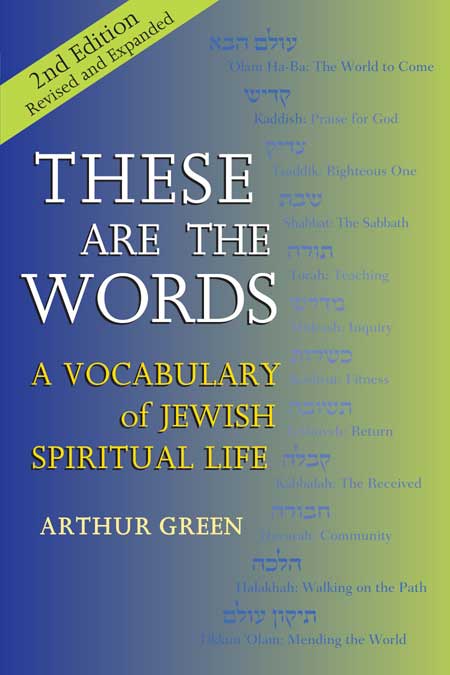
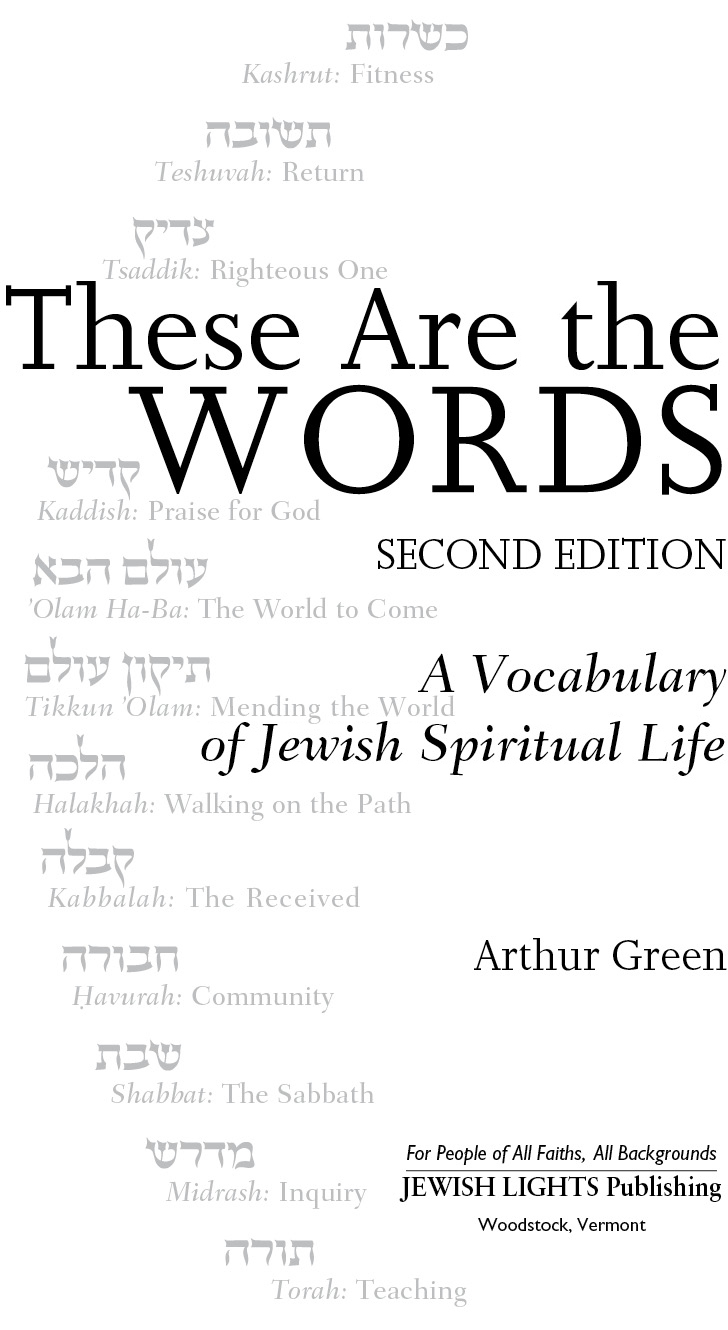
For my sister Paula
Disciple of Aaron,
Pursuer of Peace.
Seek peacein your own place
and pursue iteven to the ends of the earth
Table of Contents
TOPICAL
God and Worlds Above
Torah: Text and Process
Religious Practice
The Inner Life
Community, Life with Others
Holy Things
Holy Places
Holy Times
Table of Contents
ALPHABETICAL
Introduction
Who Should Read This Book
These Are the Words is a vocabulary list for people who seek a deep and spiritually rich understanding of Jewish life, even as they start out on their Jewish journey. It is written for both beginners and already practicing Jews, and there are several groups of such individuals I had in mind while writing it.
I have dedicated These Are the Words to my sister Paula. While I was given the opportunity of a Jewish education so that there be a bar mitsvah * (to please my grandparents), my sister was not. In those ancient times, there was no parallel to bar mitsvah for girls, so many of them were deprived of the opportunity to learn. If you are one of those many women, you are especially welcome here.
But you may also be one of their many male counterparts: a son or grandson of those Jewish families where the link to tradition was simply lost in the rush of immigrant families to make it in America, leaving the baggage of tradition behind. See this book as the lost luggage depot where you have come to collect your ancestral bags. Enjoy opening them. You have great and unknown treasures to find.
You may also be opening this book because you are studying Judaism with an interest in joining our tribe. Perhaps life has linked you to a person or family among us, or perhaps a spiritual journey has brought you here (often it is both , always in a uniquely intertwined way). To be part of an ancient people, you need to learn to speak its language. This is your guidebookthough be warned that it may lead you to a more profound and serious Judaism than that of your in-laws!
Perhaps you are a precocious and mature post- bar or bat mitsvah , for whom someone has decided that this would be a good gift to guide you on the path toward adult Judaism. Consider yourself a lucky kid to have such thoughtful friends!
Finally, you may be an already practicing and well-educated Jew, but one who has decided to add this book to your reference library as a way of deepening or challenging your usual way of thinking about Jewish life. I have tried to write this book in such a way that there is something here for you as well.
In addition to my sister, I have also had our grandparentsour mothers parentsin mind while writing this book. Max and Bessie Notkin came from der alter heym , the old country of Eastern Europe as it was before the first World War, when shtetl (small-town) Jewish culture was still alive and well. They gave me a deep sense of rootedness in their world that has served me well over the years. Every one of the 153 terms in this book (with just a few stretches) is one they would have recognized, most of them Hebrew words that were alive within daily Yiddish speech. This book is my attempt to help make these words live again in the mouths of the very different Jewish people of our day. I welcome you to join me in that process.
The Power of Words
In compiling this book, I have asked myself, What are the most essential terms that an educated Jewish seeker needs to know? What is the basic vocabulary of a Jewish spiritual life? For each term I have offered a definition, some history, and often a bit of etymology. I have tried to ask what is significant, interesting, or untranslatable about this Hebrewoccasionally Yiddishterm. Why is it important, in other words, for you to know and use this particular word, and not an English equivalent, in your Jewish vocabulary?
Truth be told, it is hard to live out a serious Judaism entirely in translation. Although I have spent a good deal of my career as a translator, making Jewish spiritual teachings available in English, I know they dont always capture the full power and beauty of the originals. Among the worlds religions, Judaism is one that has a deep and loving tie to its sacred language. This is something Judaism has in common with Islam. While there are great religious works written in Persian or Urdu, every Muslim knows that the Quran can only be appreciated in the Arabic original. We can write profound books on Judaism in English, to be sure. But they will always refer back to the Hebrew text of Torah *. The teachings of our tradition are often based on close readings and subtle meanings of words and phrases, or on wordplays possible only in the original.
Yet, we have to accept the reality that not all Jews in our day will be able to learn Hebrew. Mastering the classical language can take years of patient training; hardly the earmark of our fast-paced age. So this book will give you just that bit of an edge. See it either as your way of managing and enriching a Judaism lived mostly in translation, or,if I am very fortunatesee it as your first temptation toward diving in to learn Hebrew.
As you will hopefully discover here, Judaism is itself a language; a groups way of expressing our beliefs, longings, aspirations, dreams. It is these that we want to teach and share with others, then pass on to our children. The vocabulary of Jewish life, spoken in silent gesture and ritual deed as well as in words, is the framework through which we hand down our past to the next generation. It also provides the pegs on which we hang our hopes and dreams for the future.
Make Hebrew Your Own
I invite you to come learn this language with me. Read what I have to say about each given term. Think about it in your own way. Compare my interpretation with others you may have heard from rabbis or teachers or those you have read in other books. Feel free to take issue with my understanding of the tradition or some of my own idiosyncratic interpretations. This book is intentionally printed with blank space between entries. I urge you to write in this book. Add your own comments or views. Make this book your own by helping to write your copy of it. Have your own comments alongside mine to re-read in later years. Pass this list onhopefully in your own enriched versionto your next generation.
Torah is a process that never ends. We Jews are a people ever engaged in the passing on of tradition. The very fact that each of us stands as a living link between those who preceded us and those who come after us means that we are all transmitters of Torah . To do that work faithfully, we have to learn, absorb, and understand the teachings of the generations that came before us. Learning the vocabulary of Jewish life is a crucial step in that process. But a second step comes after it. Once we have learned, we have to make the tradition ours, put it into our own words, and enrich it with our own concerns. The Judaism we share with others and pass on to our children should be better and richer because our generation lived it. No tradition can survive merely as an antiquarian legacy, a burdensome past we cannot escape. Only by adding the experience and example of our own Jewish lives to the legacy weve inherited do we truly pass on a torat hayyim , a living teaching, to those who come after us.
These Are the Words is a very personal book. It expresses a Judaism I have come to love and embrace over many years of living, and not without struggle. It emphasizes the mystical and Hasidic traditions perhaps more than other authors would choose to do. The famous Hasidic master Rabbi Pinhas of Korzec once said: I thank God for having brought me into the world after the Zohar was revealed, for the Zohar kept me a Jew. I say the same, both with regard to the Zohar * and to the teachings of the Hasidic masters themselves. Over the years, this neo-Hasidic reading of Judaism has become my own. Now I feel blessed for the privilege of sharing my Judaism with you.
Next pageFont size:
Interval:
Bookmark:
Similar books «These Are the Words, 2nd Edition : A Vocabulary of Jewish Spiritual Life»
Look at similar books to These Are the Words, 2nd Edition : A Vocabulary of Jewish Spiritual Life. We have selected literature similar in name and meaning in the hope of providing readers with more options to find new, interesting, not yet read works.
Discussion, reviews of the book These Are the Words, 2nd Edition : A Vocabulary of Jewish Spiritual Life and just readers' own opinions. Leave your comments, write what you think about the work, its meaning or the main characters. Specify what exactly you liked and what you didn't like, and why you think so.

